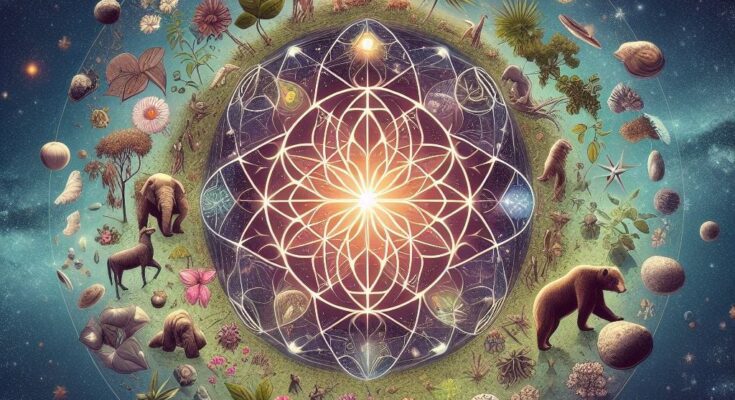In the realm of scientific and philosophical discourse, the concept of biocentrism has sparked both fascination and controversy. Initially proposed by Dr. Robert Lanza, biocentrism posits that biology is the central driving force in the universe, suggesting that life and consciousness dictate reality itself. However, amidst the intrigue, a critical examination reveals several significant challenges and criticisms that prompt the reconsideration of this theory.
Understanding Biocentrism
Biocentrism stands as a theory proposing that life, particularly consciousness, plays a fundamental role in the cosmos. According to this perspective, the universe’s existence and structure revolve around biological observations and principles. The Theory of Everything within biocentrism asserts that biology, rather than physics, holds the key to comprehending the universe’s deepest mysteries.
Criticisms of Biocentrism
Despite its intriguing premise, biocentrism faces robust criticisms, particularly from the realms of quantum mechanics and scientific consensus. Quantum mechanics, a cornerstone of modern physics, presents a formidable challenge to biocentric assertions, as its principles often contradict the fundamental tenets of this theory. Moreover, the lack of widespread acceptance within the scientific community underscores the uphill battle that proponents of biocentrism must confront.
Examining Quantum Mechanics
Delving into the intricacies of quantum mechanics reveals a landscape rife with phenomena that seem incompatible with biocentric principles. Quantum theory’s exploration of particle behavior at the subatomic level introduces concepts such as superposition and entanglement, which defy intuitive understanding and challenge traditional notions of reality.
Challenges from Scientific Community
The scientific community’s reluctance to embrace biocentrism stems from a dearth of compelling scientific evidence and empirical research supporting its claims. While proponents argue for the theory’s philosophical elegance, skepticism persists due to the lack of robust experimental validation.
Alternative Perspectives
In contrast to biocentrism, alternative philosophical frameworks such as materialism and dualism offer competing explanations for the nature of reality. Materialism posits that the physical world, governed by natural laws, constitutes the ultimate reality, while dualism introduces the notion of a separate realm for consciousness distinct from the material universe.
Revisiting the Theory of Everything
The concept of a Theory of Everything lies at the heart of biocentrism, suggesting a unified understanding of the universe through the lens of biology and consciousness. However, the complexity of cosmic phenomena and the elusive nature of consciousness present formidable obstacles to achieving such comprehensive insight.
Exploring Consciousness
Central to biocentrism is the exploration of consciousness and its role in shaping reality. From subjective experiences to perceptual phenomena, understanding consciousness proves to be a multifaceted endeavor that defies easy explanation.
Philosophical Arguments against Biocentrism
Beyond scientific critiques, philosophical considerations challenge the ethical and moral implications of biocentric ideology. Debates surrounding the ethics of prioritizing life and consciousness in the cosmic hierarchy raise questions about anthropocentrism and the value of non-human entities.
Impact on Environmental Ethics
Biocentrism’s influence extends into the realm of environmental ethics, where considerations of ecology and sustainability intersect with philosophical inquiry. Advocates argue that prioritizing the well-being of all living organisms aligns with biocentric principles, urging a reevaluation of humanity’s relationship with the natural world.
Conclusion
In conclusion, while biocentrism offers a compelling perspective on the nature of reality, it faces substantial challenges from both scientific and philosophical fronts. The juxtaposition of quantum mechanics, empirical evidence, and ethical considerations necessitates a nuanced reevaluation of biocentrism’s place within contemporary discourse. As the quest for a comprehensive understanding of the universe continues, the debate surrounding biocentrism serves as a testament to the complexity and richness of human inquiry into the cosmos.





